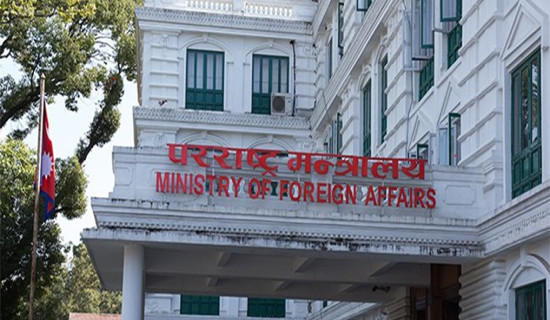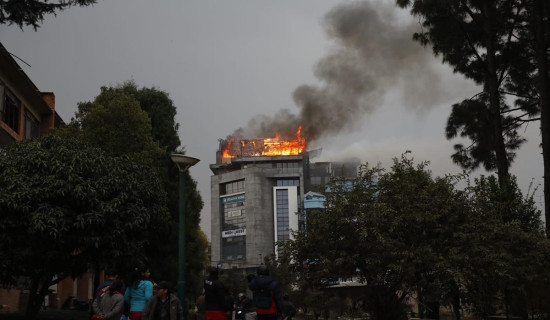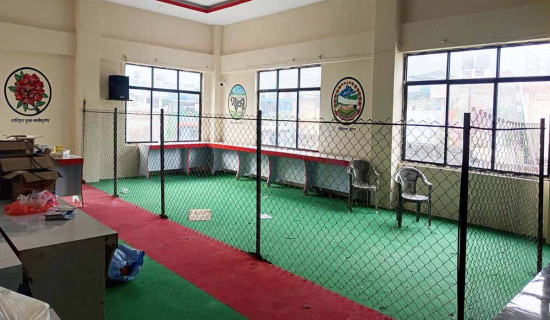- Wednesday, 4 March 2026
Street Vending Integral To Urban Living
Mayor Balen Shah has been immersing himself in some of the most difficult issues in Kathmandu that urban cities face. Solid waste management, street vendors and excavation and removal of illegal properties are some of the major issues that he has taken up as soon as being elected as Mayor of Kathmandu. Street vendors are essential inhabitants of urban cities. They serve the urban people with easily available goods and services at competitive prices. Their livelihood depends on the volume of people they serve.
A street vendor is a person who sells various goods such as vegetables, clothes, kitchen utensils, etc. They do not have a permanent space they rent so their “business” is unregistered and excludes tax payment. Many shopkeepers in Nepal complain that the street vendors often earn more than them. Most street vendors come from the below poverty level and are often migrants who move around selling their goods, make profit and again move on somewhere else. They are part of the informal economy which keeps the lives of the majority of the poor people of Asia and Africa alive. Some street vendors could be stationary occupying the same spot every day to sell their goods.
Street vendors increasing
While registered shopkeepers pay rent for the space they occupy and tax to their municipalities, the street vendors don’t and often earn more than the rent paying shop keepers. Even with carts and baskets they pull or carry they occupy certain space every day to go about their businesses. As the urban poor increase in cities, the street venders increase too. The National Policy for Urban Street Vendors of India notes that its street venders constitute about 2 per cent of the population of a metropolis. Research also mention that there is a steady increase of street vendors in most Asian cities.
While Metropolises like Kathmandu struggle with removing the street vendors it is important to review what may have gone wrong in the first place. As the capitalist market economy blooms, so does the urban population including the urban poor from both the local and migrant communities. Therefore, a capitalist ecosystem where an integrated approach of coexistence of street vendors in the city’s social and economic life may be the need of the day that people like Mayor Balen Shah and Mayor Chiri Babu Maharjan may need to look into. Due to a lack of jobs people from different parts migrate into cities and the Kathmandu Valley lures most of the aspiring youth and labour workforce from the hills, the mountains and the Terai.
As job availability has become more and more difficult, people opt to become street vendors. The shrinking jobs in the formal sector, lack of skills and education pushes more and more urban poor into street vending. Entry into street vending trade is easy as it does not require formal education, registration, tax payment or rental space payment. As the urban poor increase and street vendors increase their families start moving in and working with them. The number of women street venders is increasing in the Kathmandu valley. While initially only men were seen in this profession, now more and more women are increasing together with their children.
These street vendor’s lives are always in precarious conditions as they are always at the risk of being evacuated by the government and need to develop skills of claiming their “space” on the footpaths, streets, bridges, flyovers or under the flyovers. Apart from this they are also at risk of several types of abuse due to lack of security and protection. Most of the Asian countries do not have proper laws related to the street vendors. According to a research, Street Vendors in Asia by Sharit Bhowmi, India, Malaysia and the Philippines have policies for the regulation and protection of street vendors in Asia. The research states that among the three only Malaysia seems to be sincere in implementing the policy.
Malaysia is the only country where there is a provision to give licenses to the street vendors thus they are provided facilities for conducting their trade. The government also provides credit facilities for them. India is one of the countries with large numbers of urban poor and street vendors. The Street Vendors Bill was adopted in 2014 and the National Policy For Urban Street Vendors in 2009. In his article Integrating Vendors in City Planning Avik Munshi mentions that the Street Vendors’ Bill is a big step towards recognising the rights of street vendors not only to get space but also to participate in decision making about the city.
While the Mayors are evicting the street vendors, it is important to review what laws, rules and regulations prevail in Nepal that are directly related to the lives of the street vendors. Just evicting them as they are not tax payers is not enough. It is important to provide physical space in selected areas where they can conduct their business. It is also important to note that it has been a traditional and cultural practice of Nepali people to having vegetables and different food items delivered at home that has been integrated in their life style and will be difficult to get rid of.
Therefore, a proper planning and strategy needs to be developed. Such planning should include the commercial, social and political perspectives to understand how different groups function in different areas. Spatial structures need to be developed based on the need of the people of any city. This includes both the well-off and the urban poor. No human should be driven off or stopped from earning to live just because they do not have a permanent space. Planners should not focus only in making policies and designing spaces. They should look at the integrated social and human values of people no matter which class cast or category they belong to.
(Namrata Sharma is a journalist and women rights advocate.namrata1964@yahoo.com Twitter handle: @NamrataSharmaP )












-original-thumb.jpg)
-original-thumb.jpg)



